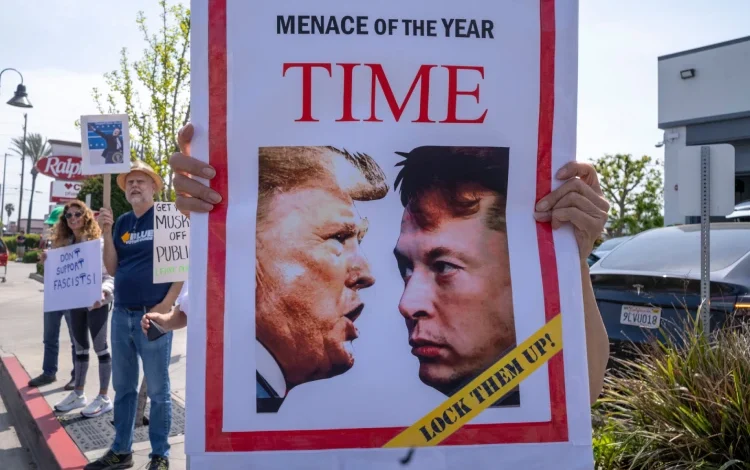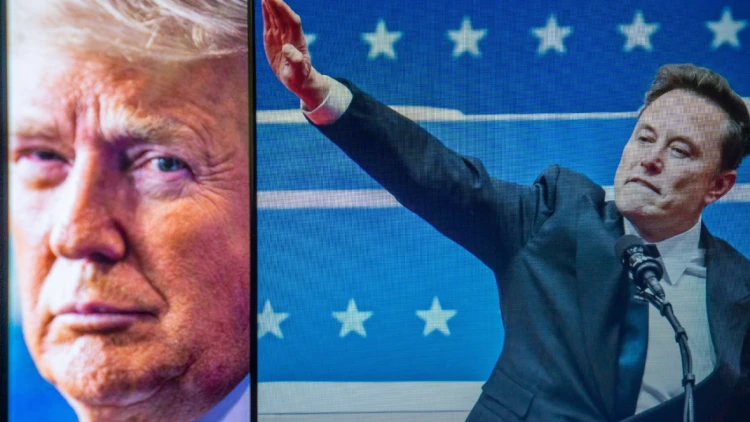
Trump and Musk Rift Raises Questions About Future of Tech Contracts with U.S. Government
Public Fallout Between the President And the SpaceX CEO Casts Uncertainty Over Billions in Federal Partnerships
A high-profile fallout between President Donald J. Trump and Elon Musk is drawing attention to the broader relationship between the U.S. government and private tech companies. What began as a politically strategic alliance has turned into a public dispute, with federal contracts and future cooperation now hanging in the balance.
The tensions escalated after Trump accused Musk of disloyalty and proposed ending government subsidies and federal contracts for Musk-led companies, including SpaceX and Tesla. Musk responded by criticizing the administration’s proposed budget and hinting at Trump’s possible involvement in ongoing investigations tied to sealed Epstein-related documents.
Trump’s remarks, issued from the Oval Office and posted on Truth Social, suggested that cutting ties with Musk’s businesses would be a straightforward way to reduce federal spending.
This dispute has turned attention toward a larger issue: the extent to which private innovation, especially in space and energy, depends on political alignment in Washington.
A Shift in a Longstanding Relationship

Musk’s companies have been closely integrated with key government operations. SpaceX remains the primary space launch provider for NASA and the Department of Defense. Tesla, meanwhile, has played a leading role in federally supported clean energy programs and electric vehicle infrastructure.
A 2024 estimate from the Congressional Budget Office valued federal agreements with Musk’s companies at over $38 billion. The scale of these partnerships has made the Trump-Musk conflict more than a personal feud. It now raises concerns about stability in public-private cooperation.
Following Trump’s remarks, Tesla shares dropped by 18 percent. A spokesperson for SpaceX said the company was conducting internal reviews of its government contract obligations. Although Musk later clarified that he had no immediate plans to suspend space operations, the market reaction indicated the stakes were high.
Reactions in Washington and Silicon Valley
Federal agencies and corporate leaders are now reevaluating their strategies. A Defense Department official, who spoke on condition of anonymity, said canceling SpaceX contracts without a ready alternative would pose national security risks. “Until there’s another company that can match that launch capacity, SpaceX is not easily replaced,” the official said.
House Republicans signaled that they would proceed with the budget bill despite Musk’s criticism. Within the tech sector, however, the response was more cautious. Executives in private discussions expressed concern that political fallout could put other companies at similar risk.
An executive from a competing aerospace firm noted that the incident has triggered anxiety about the consequences of being too closely tied to any administration. “This changes how everyone thinks about political proximity,” the executive said.
Implications for Government-Industry Collaboration
The situation could reshape how technology firms approach federal partnerships. Political access has often translated into business opportunities, but the current dispute may mark a turning point.
Cynthia Morales, a fellow at the Brookings Institution, said that while political ties have traditionally opened doors for contracts, that model may no longer be sustainable. “It used to be about building strong relationships with Washington,” she said. “Now companies are seeing the risks of being caught in political crossfire.”
Even Musk’s critics are wary of setting a precedent where contracts are revoked in response to political disagreement. A former official from the Department of Energy warned that such moves could undermine trust in federal procurement. “If someone can lose contracts overnight based on conflict with the president, it creates instability for the entire sector,” the official said.
Uncertain Path Ahead
As the White House moves forward with its cost-cutting proposals and Musk continues to defend his companies’ roles in national infrastructure, questions remain about how government agencies will adapt.
Programs dependent on Musk’s technology, such as manned space missions, satellite launches, and electric vehicle rollouts, may face delays or renegotiations. Agencies are likely to proceed cautiously until there is clarity on whether the fallout will affect ongoing operations.
The breakdown of the Trump-Musk partnership signals more than a personal conflict. It may prompt federal agencies and private firms alike to reconsider how they structure long-term collaborations in an increasingly polarized political environment.




